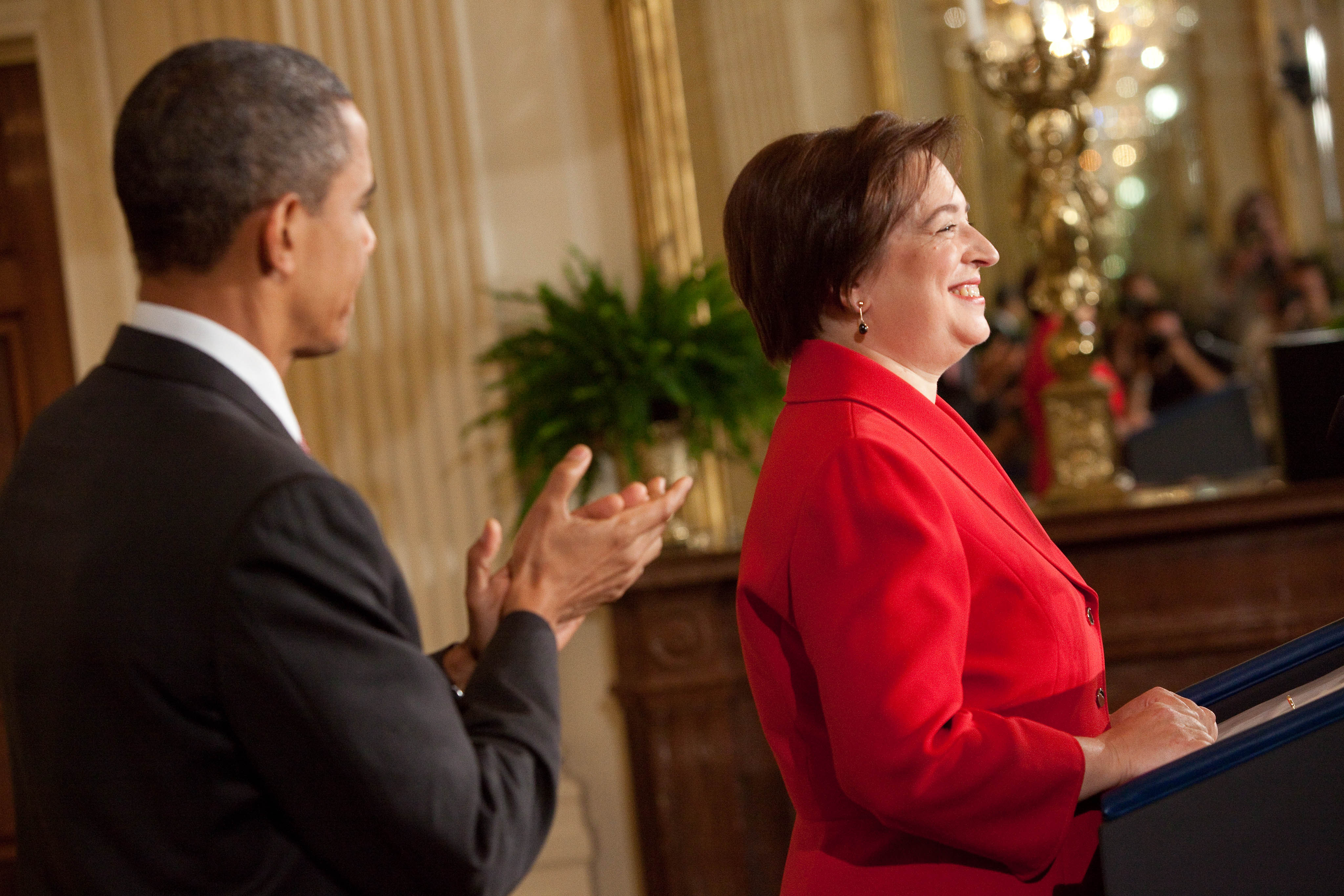
“This is a good day,” said the President this afternoon. And it was, especially for Elena Kagan, who was being congratulated on her on confirmation as the next Supreme Court Justice. He thanked the other Justices in attendance for coming, and thanked the Senate – in particular Judiciary Chairman Leahy – for their work in the process.
The President noted the bipartisanship in the final vote and recounted the broad support her nomination received across the ideological spectrum:
These folks may not agree on much, but they’ve all been impressed, as I have, by Elena’s formidable intellect and path-breaking career -- as an acclaimed scholar and presidential advisor, as the first woman to serve as Dean of the Harvard Law School, and most recently as Solicitor General. They admire how, while she could easily have settled into a comfortable practice in corporate law, she chose instead to devote her life to public service. They appreciate her even-handedness and open-mindedness, and her excellent -- and often irreverent -- sense of humor.
These are traits that she happens to share with the last Solicitor General who went on to become a Supreme Court Justice -- one for whom Elena clerked, and whom she considers one of her heroes -- Justice Thurgood Marshall. And we are very proud to have Justice Marshall’s widow here today joining us. (Applause.)In a tribute she wrote after Justice Marshall’s death, Elena recalled how she and her fellow clerks took turns standing guard when his casket lay in state at the Supreme Court -- and how 20,000 people stood in a line that stretched around the block to pay their respects. They were people from every background and every walk of life: black, white, rich and poor, young and old. Many brought their children, hoping to impress upon them the lessons of Justice Marshall’s extraordinary life. Some left notes, some left flowers. One mourner left a worn slip opinion of Brown v. Board of Education.
It is, to this day, a moving reminder that the work of our highest Court shapes not just the character of our democracy, but the most fundamental aspects of our daily lives -- how we work, how we worship, whether we can speak freely and live fully, whether those words put to paper more than two centuries ago will truly mean something for each of us in our time.
For her part, Kagan echoed the gratitude for those who worked so hard in the process, and gave a special note of thanks to her family:
Finally, I want to thank my family and friends. I have a lot of family here today -- my brothers and sister-in-law, a nephew, a niece, aunts, uncles, cousins -- and I have a great many friends here as well. You came from all over the country as soon as you heard the Senate had approved my nomination. And I’m moved and deeply grateful for your support.
And all around me in this room, I feel the presence of my parents. I wouldn’t be standing here today if not for their love and sacrifice and devotion. And although my parents didn’t live to see this day, what I can almost hear them saying -- and I think I can hear Justice Marshall saying this to me right now as well -- is that this appointment is not just an honor. Much more importantly, it is an obligation -- an obligation to protect and preserve the rule of law in this country; an obligation to uphold the rights and liberties afforded by our remarkable Constitution; and an obligation to provide what the inscription on the Supreme Court building promises: equal justice under law.
Tomorrow, I will take two oaths to uphold this solemn obligation: one, to support and defend the Constitution; and the other, to administer justice without respect to persons, to the rich and poor alike.
Today, Mr. President, I will simply say to you and to everyone here and across the nation that I will work my hardest and try my best to fulfill these commitments and to serve this country I love as well as I am able.



